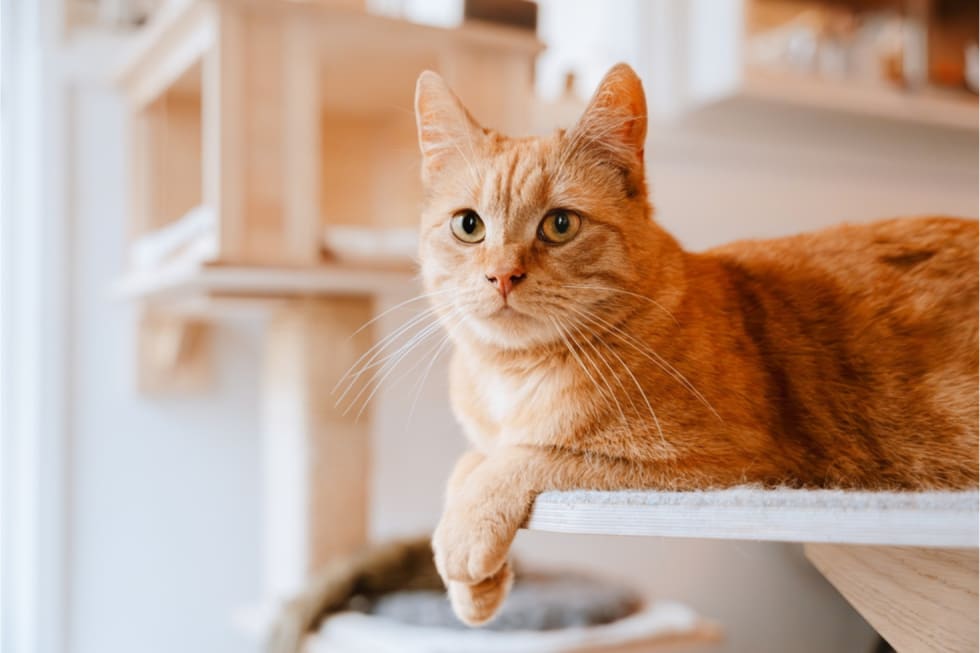- 97 units available
- 1 bed • 2 bed
- Amenities
In unit laundry, Granite counters, Hardwood floors, Dishwasher, Pet friendly, 24hr maintenance + more

Yes, if you’re renting with a pet then renter’s insurance is highly recommended, and in many cases, required. While renter’s insurance is primarily designed to protect your belongings from theft, fire, or other damage, many policies also include pet liability coverage. This can be a financial lifesaver if your pet accidentally injures someone or damages another person’s property.
Some landlords even make renter’s insurance with pet liability a mandatory lease requirement, especially in pet-friendly buildings or if you own a larger dog breed. Even if it’s not required, having coverage in place offers peace of mind, because accidents can happen, even with the best-behaved pets.
In this guide, we’ll break down what renter’s insurance typically covers, how pets factor into your policy, and why the right plan can protect both your wallet and your furry companion.
Renter’s insurance is a type of policy designed specifically for people who live in rental properties. It helps protect your personal belongings and offers liability coverage if something goes wrong while you’re living in the unit.
Here’s what most standard policies include:
Most policies cost between $10 and $30 per month, depending on your coverage level, deductible, and location. It’s a small price to pay for a whole lot of protection, especially if you’re a pet owner.

If you have a pet, renter’s insurance becomes even more valuable, especially when it comes to liability protection. Most standard policies include coverage for pet-related incidents, but it's important to understand what’s included and what’s not.
This liability coverage helps pay for medical bills, legal fees, and property repairs so you’re not footing the entire bill out of pocket.
Before signing a policy, always check the fine print. Some insurers have breed-specific exclusions or require additional coverage for certain animals. If in doubt, ask your provider about your specific pet’s eligibility.
Pet liability insurance is a type of coverage that specifically protects you if your pet injures someone or damages someone else’s property. It helps cover medical bills, legal fees, and settlement costs if your pet causes harm, even unintentionally.
In many cases, pet liability is included in the general liability portion of a standard renter’s insurance policy, but not always. Some insurers exclude certain animals or breeds, and others require you to purchase additional or standalone coverage.
If your current renter’s insurance doesn’t offer this protection—or excludes your pet—it’s worth looking into a supplemental or standalone pet liability policy for peace of mind.

While renter’s insurance often includes pet liability coverage, many insurers have breed-specific exclusions for dogs they consider “high-risk.” This means your policy might not cover certain pets, even if they’ve never shown aggression.
These exclusions aren’t universal, but they’re common enough that it’s essential to read the fine print of any policy you're considering.
Getting clear answers upfront can prevent denied claims, and help you make sure your coverage actually protects you when it matters.
Legally? No. There’s no federal or state law requiring you to carry renter’s insurance just because you have a pet. But landlords can and often do set their own rules.
Many landlords now require proof of renter’s insurance as a condition of leasing to pet owners. Some even specify a minimum level of pet liability coverage, often around $100,000, to ensure you're financially responsible in case your pet causes harm.
Always read your lease carefully. If it states that renter’s insurance is mandatory, especially for pet-owning tenants, failing to provide proof could be considered a lease violation and may result in penalties or even termination.
Even if it’s not required, having coverage in place protects both your pet and your financial future. It's one of the smartest moves a renter with animals can make.
| Benefit | Why It Matters |
|---|---|
| Covers liability | Helps with lawsuits or medical costs if your pet causes harm |
| Peace of mind | Financial protection from unexpected residents |
| Satisfies lease | Keeps you compliant with landlord policies |
| Covers theft/fire/etc. | Protects your stuff beyond pet-related events |
Not all renter’s insurance policies are created equal, especially when pets are involved. If you want real protection (and peace of mind), here’s what to look for when choosing the right policy.
Make sure your policy includes liability coverage that specifically extends to pet-related incidents. This is what protects you if your dog bites someone or your cat causes damage to a neighbor’s property.
Some insurance companies are more pet-friendly than others. Lemonade, State Farm, and Nationwide, for example, tend to offer strong pet-related coverage. Take time to shop around and get quotes from at least 2–3 providers.
Read the fine print for breed or species restrictions. Some policies exclude “aggressive” breeds or exotic pets. If your animal isn’t covered under a standard policy, you may need to go with a specialty insurer.
Get Enough Liability Coverage
Aim for at least $100,000 in liability coverage. Some landlords may require this minimum. If your pet is large or strong, consider increasing your limit for added protection.
You can often save money by bundling your renter’s insurance with auto, pet health insurance, or other policies. Ask your provider about bundle discounts to get the best value.
Renter’s insurance is a smart move for any tenant, but it’s especially important if you have a pet. From unexpected accidents to lease requirements, having the right coverage helps you stay protected without dipping into your savings.
It not only safeguards your belongings and finances, but also shows landlords you’re a responsible pet owner. More importantly, it ensures your pet doesn’t end up costing you more than you bargained for, financially or legally.
Be proactive: Review your policy, confirm that pet liability is included, and make updates if your living situation or pet circumstances change. A little preparation now can save you major headaches later.
No. Most renter’s insurance policies do not cover damage your pet causes to your own unit, like scratched floors or chewed furniture. That kind of damage is your responsibility unless your lease says otherwise.
If you're found liable, your renter’s insurance policy may cover medical bills or legal fees under its liability protection, as long as your pet is covered. Always check your policy for exclusions based on breed or incident location.
Yes. Many landlords require tenants with pets to carry renter’s insurance that includes pet liability coverage, often with a minimum coverage amount. If it's written into your lease, it's enforceable.
No. Renter’s insurance protects your belongings and covers liability if your pet causes damage or injury to others. Pet insurance, on the other hand, covers veterinary care and medical treatment for your animal. They serve completely different purposes, but both are worth considering.

In unit laundry, Granite counters, Hardwood floors, Dishwasher, Pet friendly, 24hr maintenance + more
In unit laundry, Hardwood floors, Dishwasher, 24hr maintenance, Stainless steel, Walk in closets + more